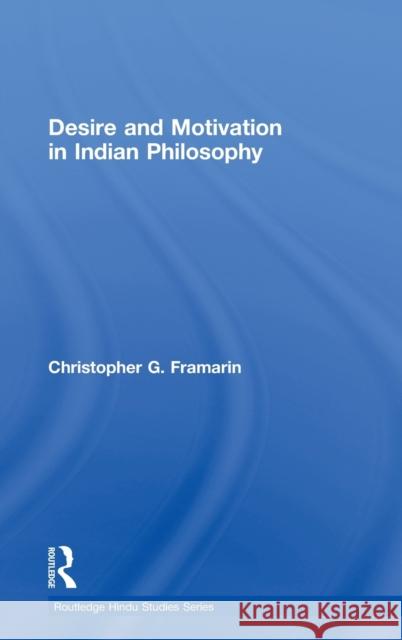Desire and Motivation in Indian Philosophy » książka
Desire and Motivation in Indian Philosophy
ISBN-13: 9780415461948 / Angielski / Twarda / 2009 / 216 str.
Desire and Motivation in Indian Philosophy
ISBN-13: 9780415461948 / Angielski / Twarda / 2009 / 216 str.
(netto: 699,68 VAT: 5%)
Najniższa cena z 30 dni: 705,23
ok. 16-18 dni roboczych.
Darmowa dostawa!
This title advances an original interpretation of the orthodox Indian theories of motivation in light of the Indian prohibition on desire and evaluates its consequences for Indian ethics and soteriology.
This book advances an original interpretation of the orthodox Indian theories of motivation in light of the Indian prohibition on desire and evaluates its consequences for Indian ethics and soteriology. The Bhagavadgita is the first text that students of Indian thought encounter, and the doctrine of desirelessness (niskamakarma) is the first philosophical problem in the Gita. This book offers a systematic analysis about the doctrine in the context of the wider orthodox tradition by employing clearly defined English terms that capture the subtle distinctions found in the Indian texts.
The author argues that the prohibition on desire should be read literally, as a prohibition on all of those mental states to which normally the English word ‘desire’ is referred to. The mental state, or more accurately, the mental event, that the Indian systems require for motivation is the counting of some fact as a prima facie reason for acting, not a desire. One’s moral agency depends on whether or not one counts the right facts as reasons and is motivated accordingly, and one’s desires – for a variety of reasons – are not the right reasons for acting. One attains liberation by this means not because moral action earns one salvation, but because desire keeps one from freedom, and liberation is freedom.
This book will be of interest to scholars of Indian philosophy, the Bhagavadgita and Hinduism.











